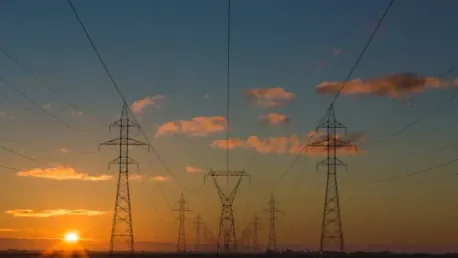Municipal permitting reform for distributed energy and backup power solutions in Texas is a pressing issue that impacts both grid reliability and consumer access to sustainable energy sources. The barriers posed by current permitting processes obstruct the widespread adoption of residential-scale batteries and solar energy systems, which are crucial for maintaining reliable backup power during grid outages.
Grid Reliability and Consumer Welfare
The significance of distributed energy resources (DERs), such as residential batteries and solar panels, cannot be understated, especially when considering grid reliability challenges. DERs can deliver dispatchable capacity to the bulk electric system, proving vital during times of grid failure. Ensuring consumer welfare requires a system where these technologies are not only accessible but also easier to install and deploy.
Permitting Challenges
Texas currently grapples with inconsistent and disparate permitting processes across its municipalities. This inconsistency creates significant hurdles for both installers and residents, curtailing the adoption of DERs. As each municipality follows its own set of regulations, the lack of standardization results in delays and increased costs for installations, thereby diminishing the appeal and feasibility of investing in sustainable energy solutions.
Economic and Bureaucratic Reform
Reducing bureaucratic hurdles and standardizing permitting procedures can significantly boost economic growth and facilitate consumer access to backup power solutions. By streamlining these processes, Texas can remove the existing bottlenecks that hamper the installation of DERs, making it more convenient and cost-effective for residents to adopt sustainable energy technologies.
State Leadership and Legislative Initiatives
Several conservative states such as Arizona, Florida, Georgia, and Utah have taken proactive measures to streamline their permitting processes. Texas has the opportunity to follow in their footsteps by supporting legislative measures like Texas House Bill 3167, Senate Bill 2, and Senate Bill 1004, aimed at reducing regulatory barriers and expediting permit approvals. These legislative efforts are critical for fostering a conducive environment for DERs.
Federal Influence and Permitting Streamlining
Federal efforts under both Presidents Obama and Trump to streamline permitting processes demonstrate the bipartisan nature of this issue. Laws such as the FAST Act and the Infrastructure Investment and Jobs Act serve as successful models of federal initiatives aimed at simplifying and accelerating the permitting process. These examples illustrate the feasibility and benefits of reducing bureaucratic complexity.
Case Studies and Comparative Analysis
Case studies from states like Arizona, South Carolina, Florida, and Utah show that streamlined, automated systems like SolarAPP+ can drastically reduce permit review times and associated costs. These states have witnessed more efficient and affordable processes in stark contrast to the slower, more expensive experiences in Texas. These comparative analyses underscore the potential benefits Texas could reap by adopting similar reforms.
Necessity for Standardization
A uniform theme throughout the discussion is the urgent need for standardized permitting processes across Texas municipalities. The current patchwork system is inefficient and costly; standardization can eliminate excessive delays and financial burdens, paving the way for more widespread adoption of DER technologies.
Economic Benefits of Streamlining
Streamlining permitting processes presents a low-cost, high-benefit solution that can rapidly scale up the deployment of DERs. Such reforms can enhance grid resilience, ensure reliable power during emergencies, and contribute to economic stability, making this an attractive option for both policymakers and consumers.
Bipartisan Support for Reform
The movement for streamlined permitting has garnered support across the political spectrum. Deregulation and the removal of bureaucratic red tape benefit all parties, and the availability of reliable power is a universal concern. This broad consensus highlights the practical and pragmatic appeal of permitting reform.
Permitting Reforms are Essential
The primary barrier to the adoption of distributed energy resources in Texas is the convoluted and inconsistent permitting processes at the municipal level. Overcoming these obstacles is essential for fostering a more robust and sustainable energy infrastructure.
Economic and Reliability Gains
Implementing streamlined permitting processes can offer tremendous economic advantages and improve grid reliability, particularly during crises. Simplified procedures will attract more residents to adopt DERs, thereby enhancing overall grid resilience.
State-Level Legislation as a Solution
Legislative intervention is an essential step toward achieving standardized and simplified permitting processes in Texas. Drawing on successful examples from other states, Texas can enact similar reforms to facilitate the smoother installation of these crucial energy resources.
Conclusion
Municipal permitting reform for distributed energy and backup power solutions in Texas has become an urgent matter affecting both grid reliability and consumer access to sustainable energy. The current permitting processes create significant barriers that hinder the widespread adoption of residential-scale batteries and solar energy systems. These systems are essential for providing reliable backup power during grid outages, but the existing regulatory framework makes it difficult for homeowners and small businesses to implement these technologies efficiently. Simplifying and streamlining the permitting process would not only facilitate greater adoption of these energy solutions but also enhance overall grid stability and individual energy security. By removing bureaucratic obstacles, Texas can empower its residents to take advantage of renewable energy sources, thereby reducing dependency on traditional power grids and contributing to a more resilient and sustainable energy future. In essence, reforming these permitting procedures is a vital step toward achieving a more reliable and accessible energy landscape in Texas.









